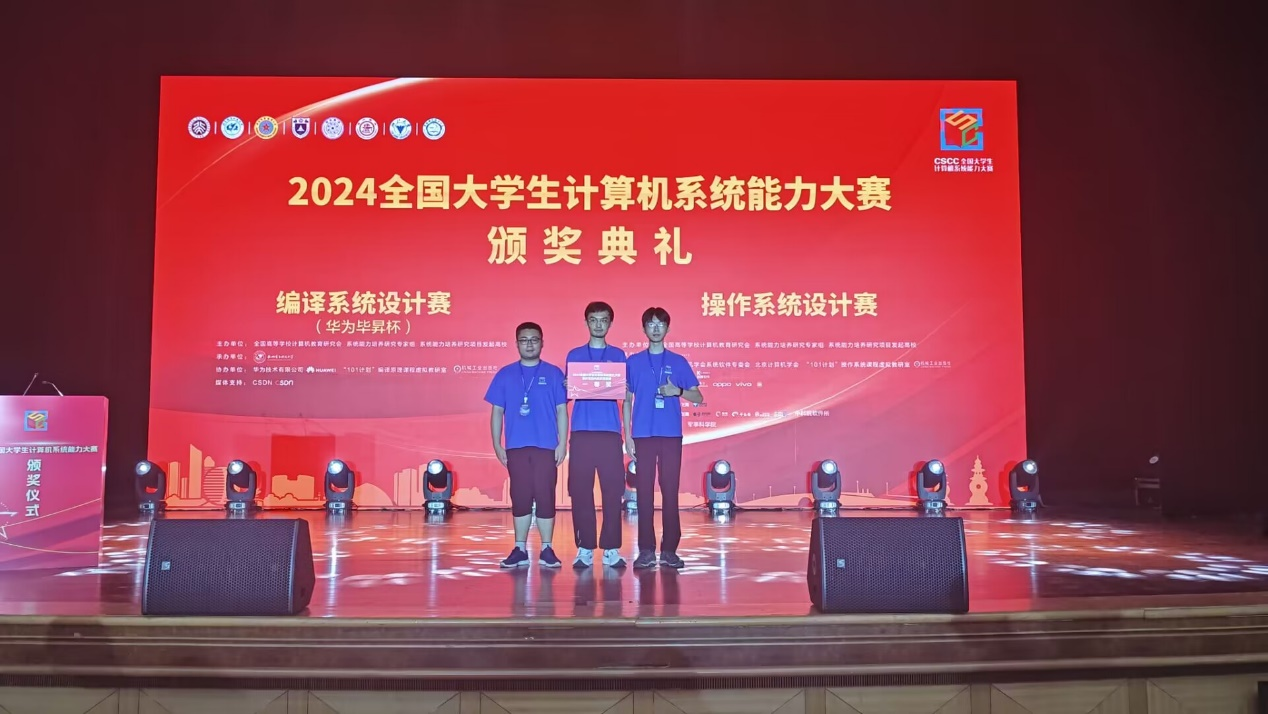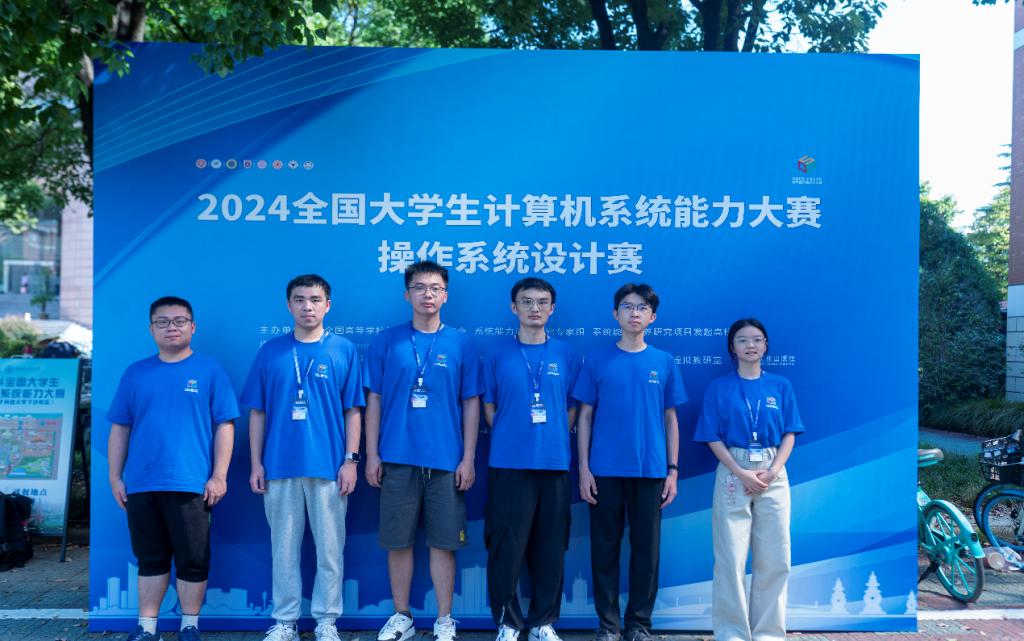The national finals of the2024Computer System Development Capability Competition Operating System Design Competition were held from August 18 to 22 at Hangzhou Dianzi University. A total of 209 teams from universities across the country advanced to the final stage. Under the guidance of Associate Professor Su Shuguang from the School of Software Engineering (SSE), the RRAM Team won the First Prize. The team members included Ren Xiao (School of CyberScience and Engineering), Zhang Feiyang (School of Cyber Science and Engineering), and Ruan Zetong (School of Software Engineering).

The RRAM Team’s challenge was based on real engineering demands from leading enterprises, with the topic titled“Loongson Architecture Support for the PA Experimental Platform.”The team successfully adapted and optimized the PA experimental teaching platform for the Loongson CPU, a domestically produced hardware platform. Over six months of preparation, the team tackled numerous technical challenges, including:
•Replacing the existing X86 hardware library of the experimental platform with a Loongson instruction set hardware library and optimizing its performance.
•Implementing an intermediate library for the experimental platform using Loongson assembly language.
•Reverse-engineering non-open-source libraries of the existing platform through disassembly techniques.
During the finals, the team’s work passed rigorous questioning from more than ten judges and was invited for a live demonstration. Their project received high acclaim from the judges, earning them the First Prize.
In addition, the Junkmalloc Team, also guided by Associate Professor Su Shuguang, won a Third Prize. The team members included Chen Yiyang (School of Software Engineering), Wen Songlin (School of Software Engineering), and Xiao Yumeng (School of Software Engineering). The Kernel Adventurers Team also won a Third Prize, with team members Xiong Jiasheng (School of Software Engineering), Mao Can (School of Cyber Science and Engineering), and Lin Guantao (School of Cyber Science and Engineering).

The Junkmalloc Team’s challenge, titled“A Reliable, Robust, Real-Time Memory Allocator - Junk Malloc,”focused on developing a memory manager capable of overcoming single-event upsets in stringent scenarios.The Kernel Adventurers Team’s challenge,titled“Support for Rust User-Space Programs on RT-Thread Smart,”involved enabling Rust-based applications to run on the C-language version of the domestically developed RT-Thread Smart operating system.
The Computer System Development Capability Competition is a nationwide contest initiated by thesystem capability cultivation research expert group andhosted by the Association of Computing Education in Chinese Universities. The competition aimed to promote professional development and reform in the innovative talent training system in the field of computer science, cultivating reserve talents for China’s high-end chips and key basic software. By encouraging students to design and implement comprehensive computer systems, the competition fosters skills in system-level design, analysis, optimization, and application. It enhances students’ technical innovation, engineering practice, and teamwork capabilities, contributing to the development of the domestic operating system industry. The competition was hosted by Hangzhou Dianzi University with support from leading enterprises, including Huawei Technologies, Kylin Software, and Loongson Technology.
SSE has always been committed to cultivating “solid fundamentals, strong capabilities” in innovative talents, focusing on the training of “system capabilities” represented by operating systems, and has achieved a series of significant results, highly recognized by society and the industry. Next, in the grand context of the nationalization of operating systems, SSE will fully leverage the leading and exemplary role of competitions in skill improvement, promoting learning, teaching, and research through competitions, enhancing students’ operating system design and innovation capabilities, and nurturing more innovative and composite talents in operating systems.

